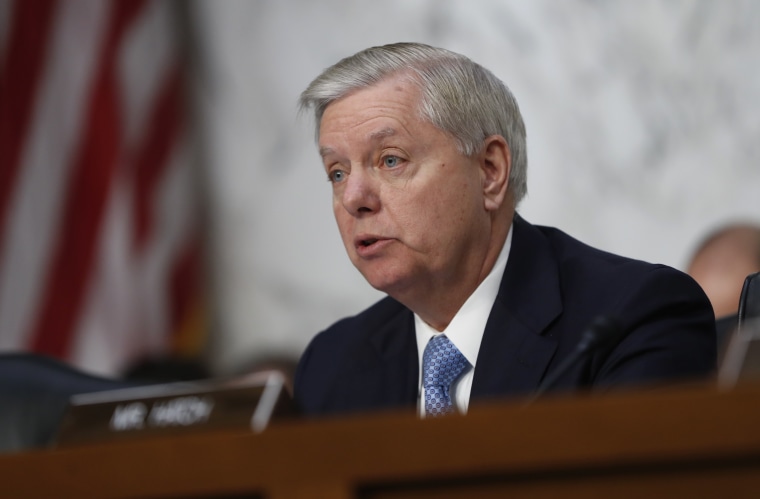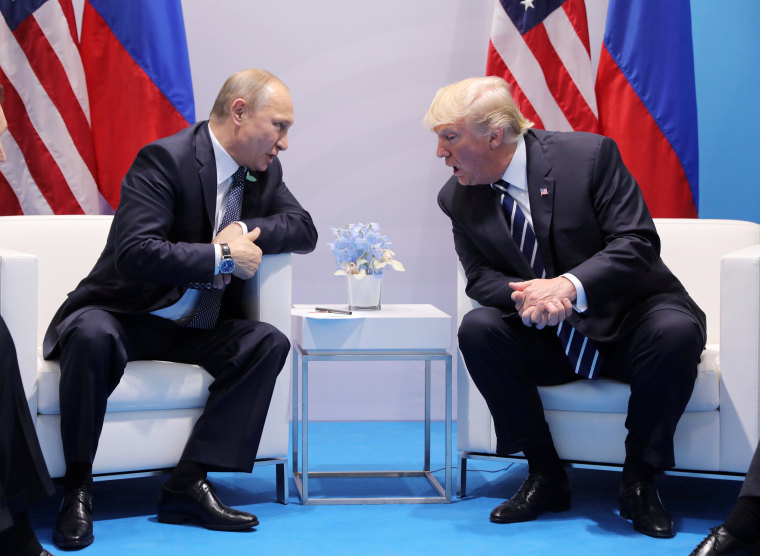WASHINGTON — With the White House facing new developments over the Trump campaign's ties to Russia, Congress is bogged down in a debate over how much authority to give the president to potentially ease sanctions against Moscow.
The Senate passed a bill to sanction both Iran and Russia by an overwhelming 98-2 margin last month, despite concerns from the White House and State Department.
The bill codifies sanctions put in place by President Barack Obama in response to Russia’s 2016 hacking campaign against Democratic officials, which America’s top intelligence agencies have said was ordered by Vladimir Putin to help boost Trump’s campaign.
The legislation would effectively give Trump, who praised Putin throughout his campaign and called him “smart” for not issuing sanctions in response to Obama’s, less room to maneuver. If the president tried to remove the sanctions, Congress would be able to override his decision.
But the bill is stuck in the House of Representatives now amid a struggle between congressional Democrats and Republicans that ties into a larger debate over the president’s policy toward Russia.
The Trump administration entered the fray this week, saying that the legislation should give Trump more freedom to negotiate with Russia without congressional approval.
White House Legislative Affairs Director Marc Short told reporters on Monday that the bill "sets an unusual precedent of delegating foreign policy to 535 members of Congress by not including national security waivers that have always been consistently part of sanctions bills in the past."
The latest version of the bill includes a substantive change that reduces the oversight powers of the Congress. The change would permit only the Speaker of the House to bring up a resolution to oppose the president should he try to weaken sanctions instead of any member of Congress.
Democrats are objecting to the change and argue that it was added by Republicans in response to the White House’s displeasure with the bill.
“I’m continuing to have conversations with my Republican colleagues regarding the Russia sanctions bill,” Rep. Steny Hoyer, D-Md., the number-two House Democrat, said. “I believe this is an issue that we can quickly resolve, and I hope that Republican leadership will work with us to address this issue and bring the bill to the floor for a strong, bipartisan vote this week.”
Republicans argue that Democrats are the ones holding up the measure. AshLee Strong, spokeswoman for House Speaker Paul Ryan, said that “House Democrats are blocking (movement) and demanding their own changes to the bill.”
Since the Senate voted on the bill, several events occurred that raised tensions over Russia, putting the current dispute into sharper focus.
Last week, Trump attended the G-20 meeting, where he emerged from a meeting with Russian President Vladimir Putin pledging a new era of cooperation on Syria and cybersecurity. The president evensuggested a joint U.S.-Russia team to tackle the issue, although Trump later backed off the idea. The White House sent mixed messages on whether the president accepted Putin’s denial of involvement in the election hacking and Trump has publicly sowed doubt about his own intelligence agencies’ conclusions.
As the large vote margin on the sanctions bill indicated, Trump’s approach was far out of step with his own party in Congress.

Sen. Lindsey Graham, R-S.C., said on Meet The Press on Sunday that he is "more committed than ever" to hit Putin with sanctions.
“There’s only one person in Washington — that I know of — that has any doubt about what Russia did in our election, and it’s President Trump,” Graham said.
Then, on Tuesday, The New York Times reported that the president’s son Donald Trump Jr., his son-in-law and senior adviser Jared Kushner, and his then-campaign chair Paul Manafort attended a meeting with a Russian lawyer after a Trump ally emailed that she was part of a Russian government operation to undermine Hillary Clinton’s campaign.
Now, the ongoing fight over the bill threatens to undermine what leaders in both parties hoped will be a clear bipartisan signal to Putin that the legislative branch will not tolerate further attacks on American elections.
“I voted for the bill and I support it,” said Sen. John Kennedy, R-La. “I think [Putin] respects power, I don’t think he at all respects weakness.”
Asked whether he believed the president shared his views, the senator replied: “I have no idea, you’d have to ask the president.”


